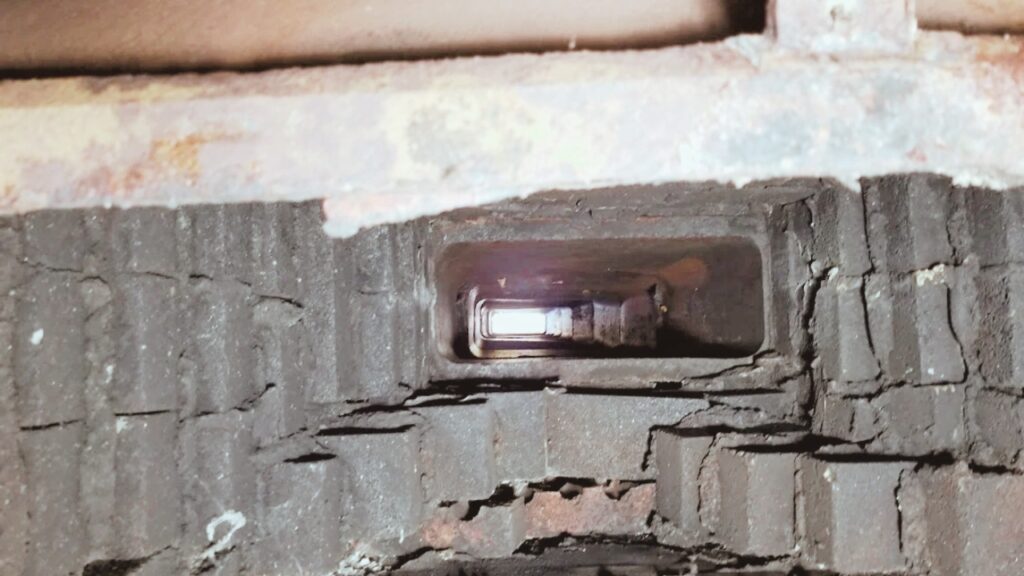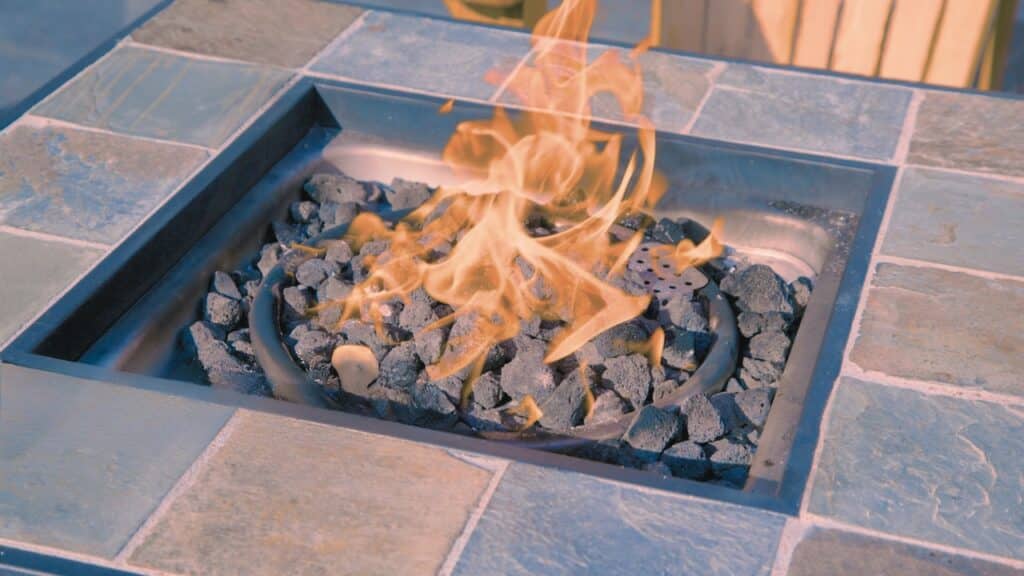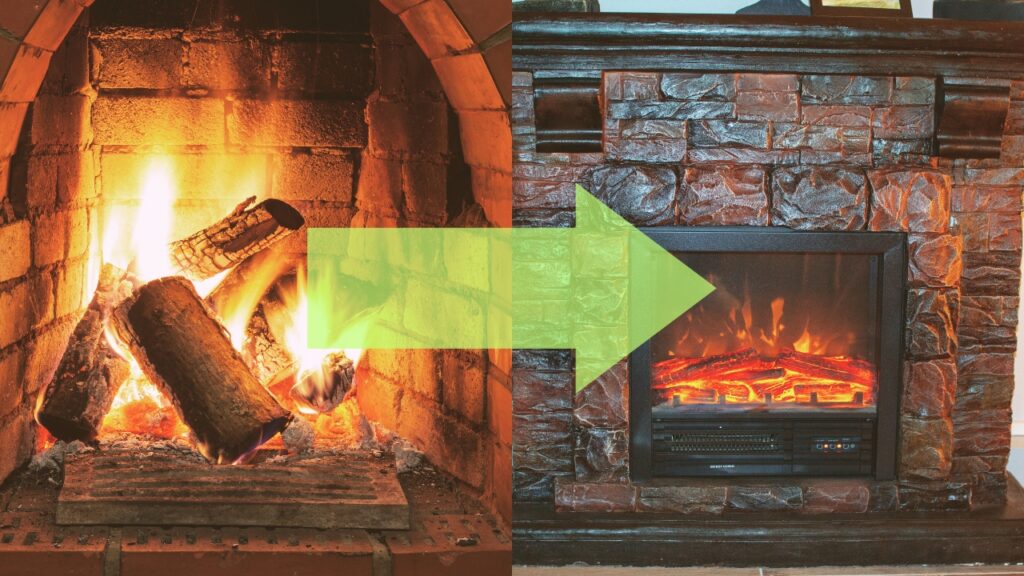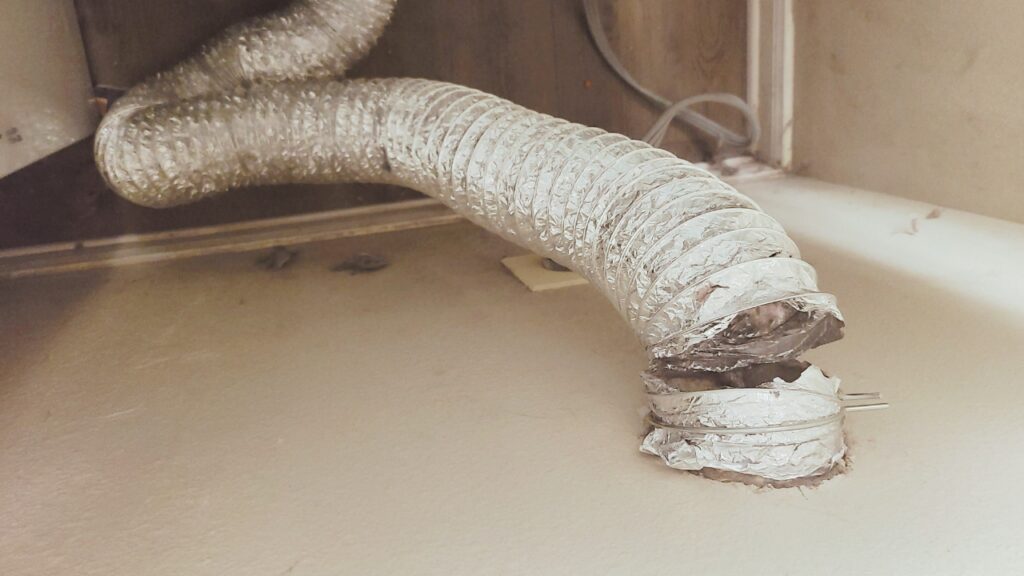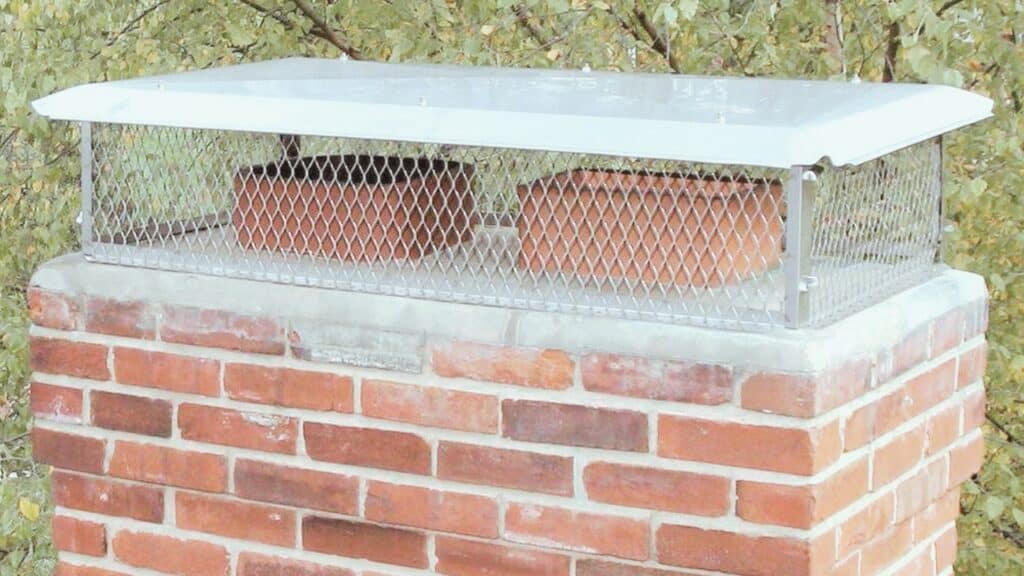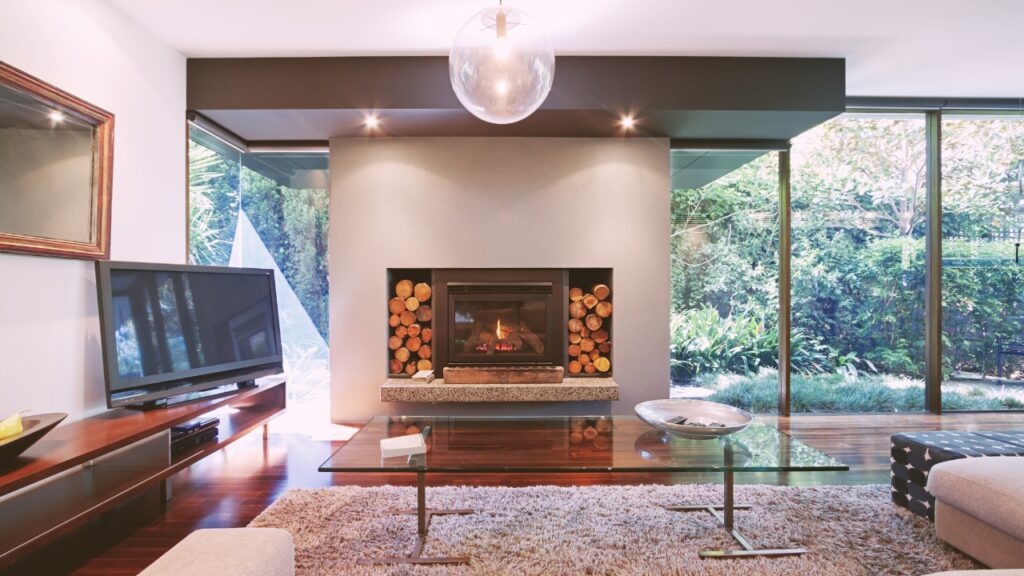Fireplaces are popular in many homes. They provide a warm and cozy atmosphere and can be a great place to gather with family and friends. However, it can be unpleasant and even dangerous if your fireplace smells bad. Why does my fireplace smell?
There are many potential reasons why your fireplace might have a foul odor. It could be because of the wood you’re burning or a problem with the chimney.
In this post, we will explore the possible causes of a smoky fireplace and recommend some solutions that will help you get rid of the smell.
1. Fireplace Smells Like Soot and Creosote
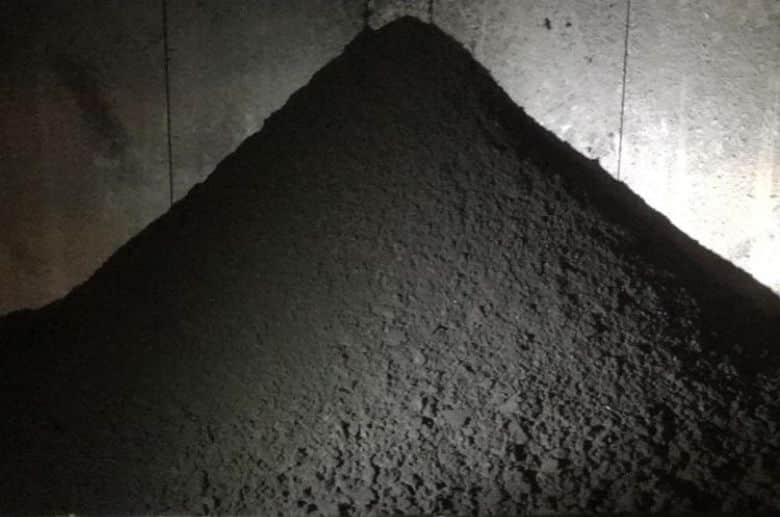
If your fireplace smells like soot and creosote, it’s probably because those substances have built up on the walls of your chimney. Creosote and soot tend to have a strong and smoky smell. You should expect to experience a scent like a driveway that is freshly-paved, which is made of asphalt.
Soot is a byproduct of combustion, and creosote is a tar-like substance that forms when wood burns slowly or incompletely. Soot and creosote can be dangerous if they’re not regularly removed from your chimney.
Soot and creosote build up in your chimney for two primary reasons: either you’re burning wood that isn’t fully seasoned (i.e., it still has too much moisture), or you have a slow-burning fire that doesn’t get hot enough to vaporize all the combustible gases.
In either case, the unburned particles of wood and gas condense on the walls of your chimney, where they eventually harden into a sticky, flammable substance.
If you have a fireplace that smells like soot and creosote, the best thing to do is to have it cleaned by a certified chimney sweep. Sweeping will remove the built-up soot and creosote from your chimney, making it safe to use again. In addition, the sweep will be able to inspect your fireplace and chimney for any other potential problems.
Ensure you’re only burning fully seasoned wood to prevent soot and creosote build-up in your chimney.
2. Fireplace Smells Like Ash
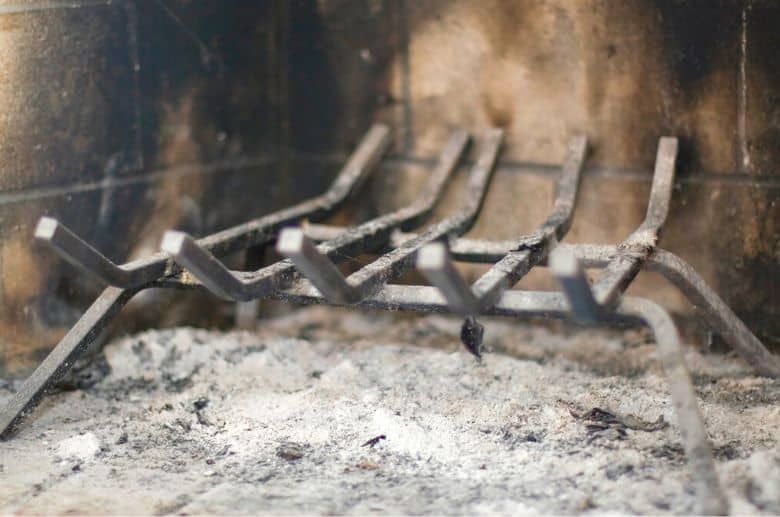
When you have a wood-burning fireplace, your home will inevitably start to smell like smoke and ash. While some people may find this scent comforting, others may not enjoy the smell of their home, feeling like a campfire. If you’re wondering why your fireplace smells like ash, there are a few possible reasons.
Your fireplace smells because the flue might be dirty, allowing smoke and gases to escape your home. You’ll need to hire a professional chimney sweeper to clean your flue.
The best way to eliminate the ash odor in your fireplace is to prevent it from happening in the first place. Be sure to clean out your fireplace regularly, especially after each use. You can also try using a fire log or stove pellet that’s designed to help reduce the amount of smoke and odor produced when you burn it.
3. Fireplace Smells Like Smoke
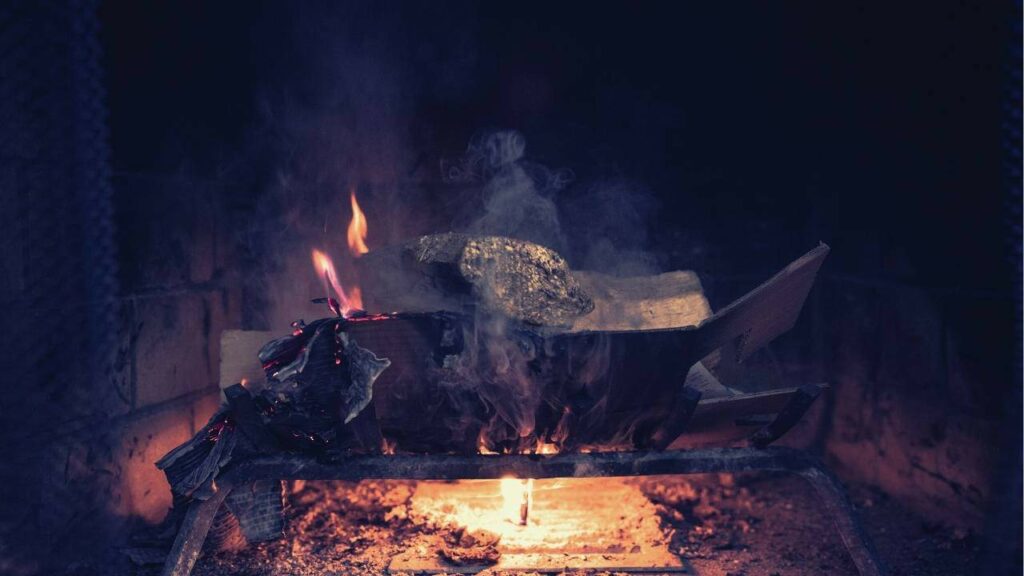
If your fireplace smells like smoke, it could be because your chimney is dirty. When ash and soot build up in the chimney, it can cause a smoky smell. It might also signify a drafting issue, such as creosote accumulation or pressure imbalances inside the home rather than outside.
You’ll need to clean your chimney to get rid of the smell. You can also try opening a window or door to let fresh air into the room, which will help clear out the smoky smell. If the problem persists, you may need to call a professional to clean your chimney.
4. Fireplace Smells Like Mildew
Your fireplace may smell like mildew because the wood is wet, a build-up of soot or creosote, or a chimney leak. If you have a wood-burning fireplace, it’s essential to ensure the wood is dry, inspected, clean, and ready for the winter before you burn it.
Wet wood can create a lot of smoke and cause your fireplace to have a mildew smell. A soot or creosote build-up can also cause your fireplace to smell mildew. To eliminate the mildew smell in your fireplace, you must use a chimney brush to remove the soot and creosote. You can also use a vacuum cleaner with a hose attachment to clean your fireplace. Afterward, you can use a vacuum cleaner with a hose attachment to vacuum the inside of your fireplace. Check where the mildew smell comes from, and remove any wet wood, leaves, or debris.
If the mildew smell persists, you may need to call a professional chimney sweeper to inspect your chimney.
——
Do You Need to Hire Chimney & Fireplace Expert?
Get free quotes from qualified experts near you. No commitment required!
——
5. Fireplace Smells Musty
We all hate the smell of musty, old, wet firewood, and it’s the smell of the fireplace smells. But why does it happen, and how can we prevent it?
The musty smell comes from the mold and mildew spores in all wood and might also come from animals nesting in your chimney. When the wood is burned, the spores are released into the air, and they can cause respiratory problems in people with allergies or asthma.
The best way to prevent this is to use a moisture meter to ensure your wood is dry before you burn it. You can also try using a dehumidifier in your home to keep the air dry and help prevent mold and mildew growth.
If you already have a musty-smelling fireplace, there are some things you can do to try and get rid of the smell.
- First, try burning fire with dry seasoned wood to help mask the musty smell.
- You can also try using a chimney sweep kit to clean out any mold or mildew that may be present in your chimney.
- You can try using a vinegar solution to clean the bricks of your fireplace. Mix one part vinegar with two parts water and scrub the bricks with a brush.
- Finally, if you can’t get rid of the musty smell, you may need to call a professional to help clean and inspect your fireplace.
6. Wood Burning Fireplace Smells Like Campfire
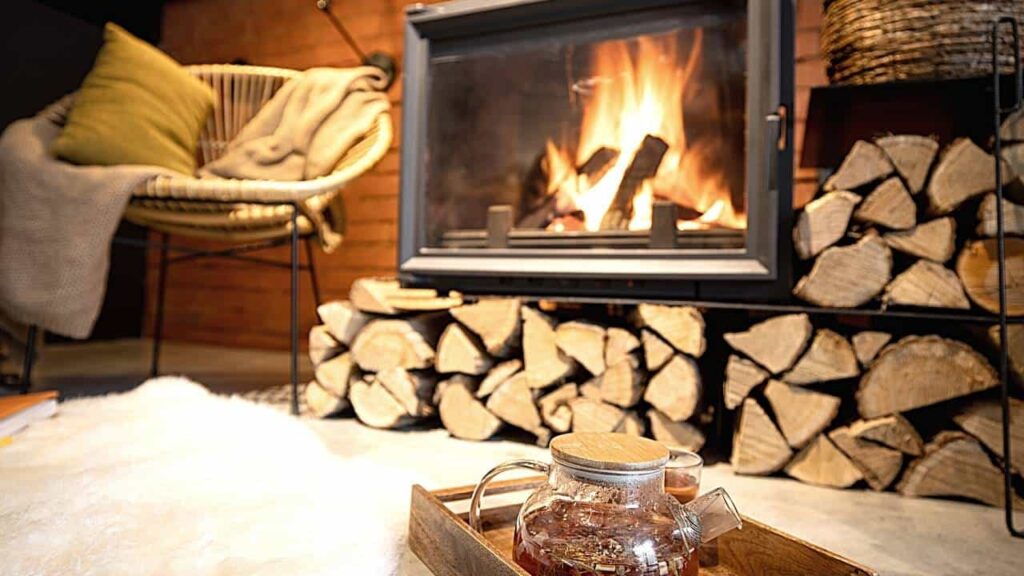
If you have a wood-burning fireplace, it’s not uncommon for it to smell like a campfire. This is because when you burn wood, the smoke contains chemicals released into the air, and your sense of smell can detect these chemicals. If you have this problem, it’s a huge reason to be concerned because it poses a significant risk.
Additionally, it can be a warning sign of a drafting problem, blocked or cracked flue if your fireplace smells like a campfire. It is best to call a certified chimney sweep to look at your fireplace and determine the cause.
You can also do a few things to minimize the smoke and reduce the campfire smell.
Make Sure the Firewood is Dry Before You Burn It
You need to make sure the firewood is dry before you burn it. If the wood is wet, it will produce more smoke, and the campfire smell will be stronger.
To dry the wood, you can either let it sit in the sun for a few days or use a wood-drying kiln.
If you don’t have time to wait for the wood to dry naturally, you can use a wood-drying kiln. A wood drying kiln is a machine that uses heat to remove moisture from the wood.
Don’t Overfill the Fireplace
One thing you need to be careful of is not to overfill the fireplace. When you overfill the fireplace, it doesn’t get enough oxygen, and the fire starts to smoke.
Smoldering fires produce a lot of smoke, and the campfire smell is powerful. So, ensure you don’t overfill the fireplace and only put in as much wood as you need.
Use a Fire Screen
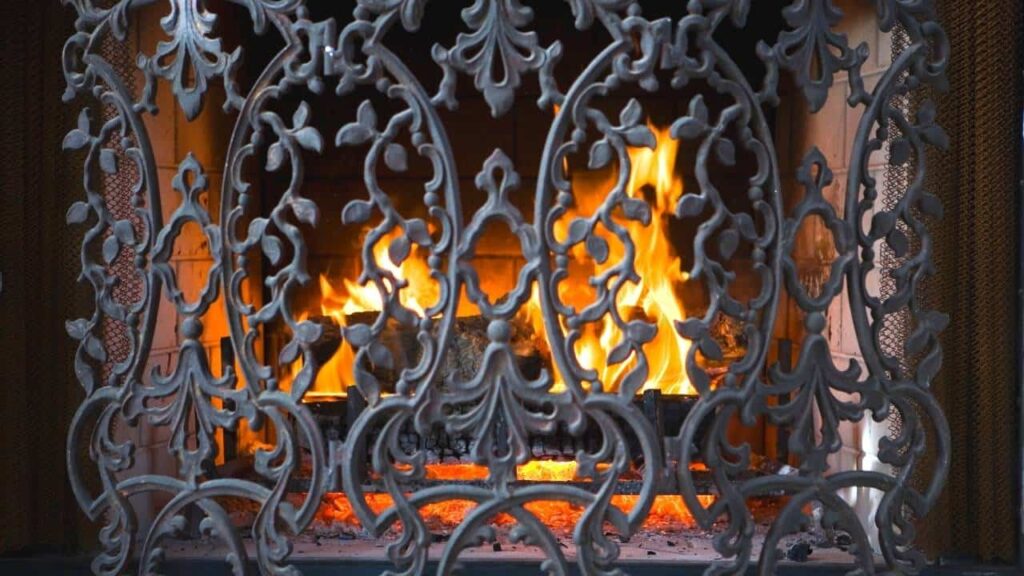
A fire screen can help contain the flames and reduce the amount of smoke that escapes up the chimney. If you don’t have a fire screen, you can make one yourself, and all you need is some wire mesh and metal rods.
Cut the wire mesh to fit the fireplace’s opening and then attach it to the metal rods. Place the fire screen in front of the fireplace when you’re not using it; it will help reduce the amount of smoke that escapes.
Get Your Chimney Cleaned Regularly
Another thing you can do to reduce the campfire smell is to get your chimney cleaned regularly—soot and creosote build up on the chimney’s walls when you burn wood.
This build-up can cause fires if it’s not removed. You can do this yourself or hire a chimney sweep to do it. Make sure the job is done correctly.
——
Do You Need to Hire Chimney & Fireplace Expert?
Get free quotes from qualified experts near you. No commitment required!
——
7. Electric Fireplace Smells Like Fish
If your electric fireplace smells like fish, it is likely due to a build-up of dust and debris. A malfunctioning heating element can also cause fishy odors. Contact a certified technician for assistance if you notice a fishy smell coming from your electric fireplace.
In some cases, an electric fireplace may produce a burning smell, usually due to lint and dust on the heating elements.
You may eliminate the fishy odor by changing your heating element, one of several techniques. When you do this, you will also want to clean your entire dryer, as there could be other parts that need attention.
Be sure to contact a certified technician to replace the heating element in your electric fireplace. Attempting to do so yourself could void your warranty or cause damage to the unit.
Once the new heating element has been installed, please test it out by running the electric fireplace for a few minutes. The fishy smell should be gone, and you can enjoy using your fireplace again.
Is it Normal for the Fireplace to Smell?
It is normal for a wood fireplace to smell like smoke when you use it. Usually, the smell should dissipate within a few minutes. Another thing, the optimum moisture content for burning wood is 20%.
If the wood is too green, it will produce more smoke and smell. Seasoned wood should be used whenever possible. Therefore, it’s essential to use the right type of wood and ensure it is adequately seasoned.
But if your fireplace smells like smoke when not in use, it could indicate a bigger problem, like a blockage in the chimney. If you notice this, you should call a professional to come and take a look.
Conclusion
There are many possible explanations for your fireplace smell. The most likely reason is that your chimney builds soot and creosote. It’s also possible that your fireplace smells bad because it needs to be cleaned or there is something wrong with the ventilation.
If you’re unsure about what’s causing the problem, it’s best to consult a professional.

